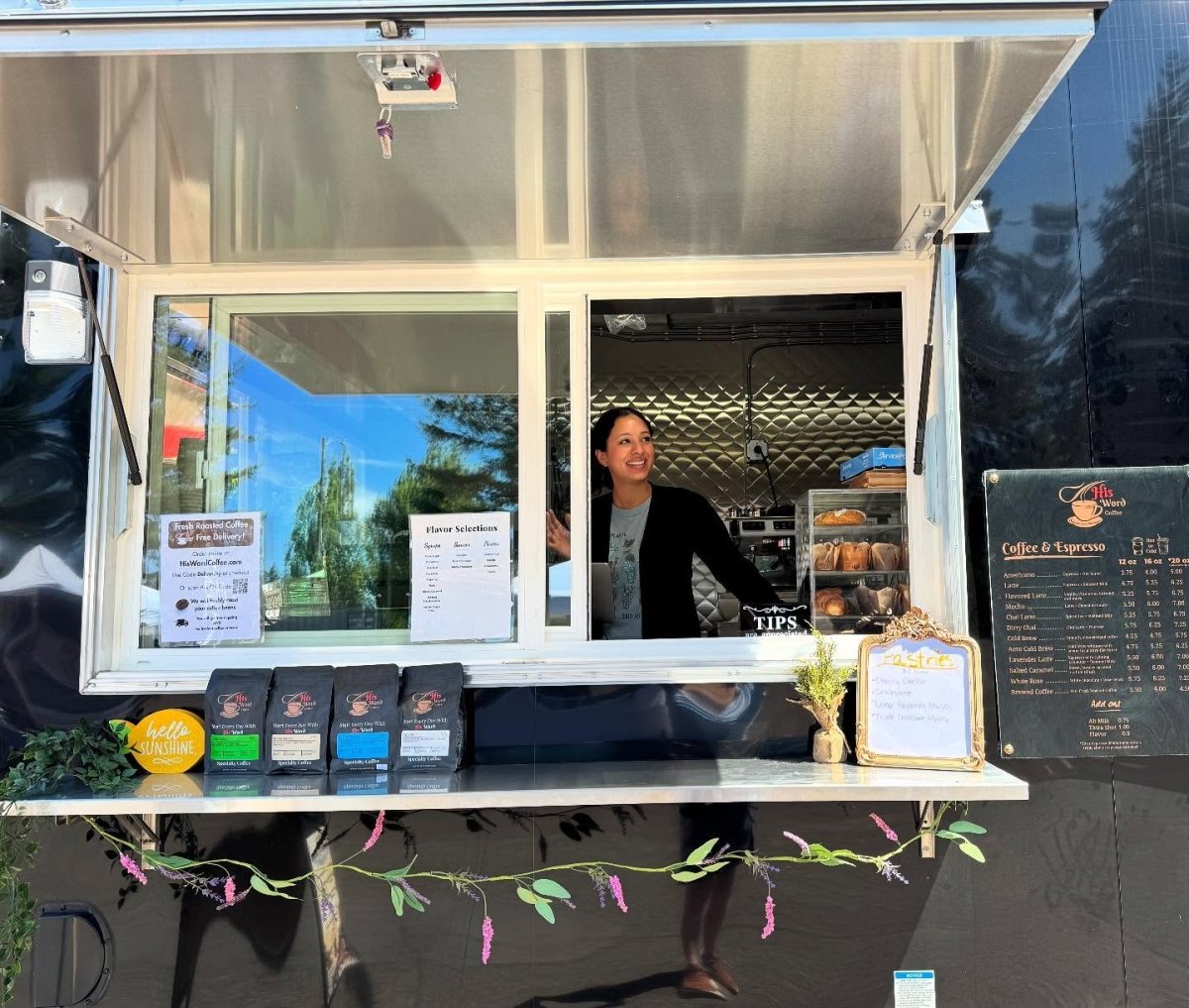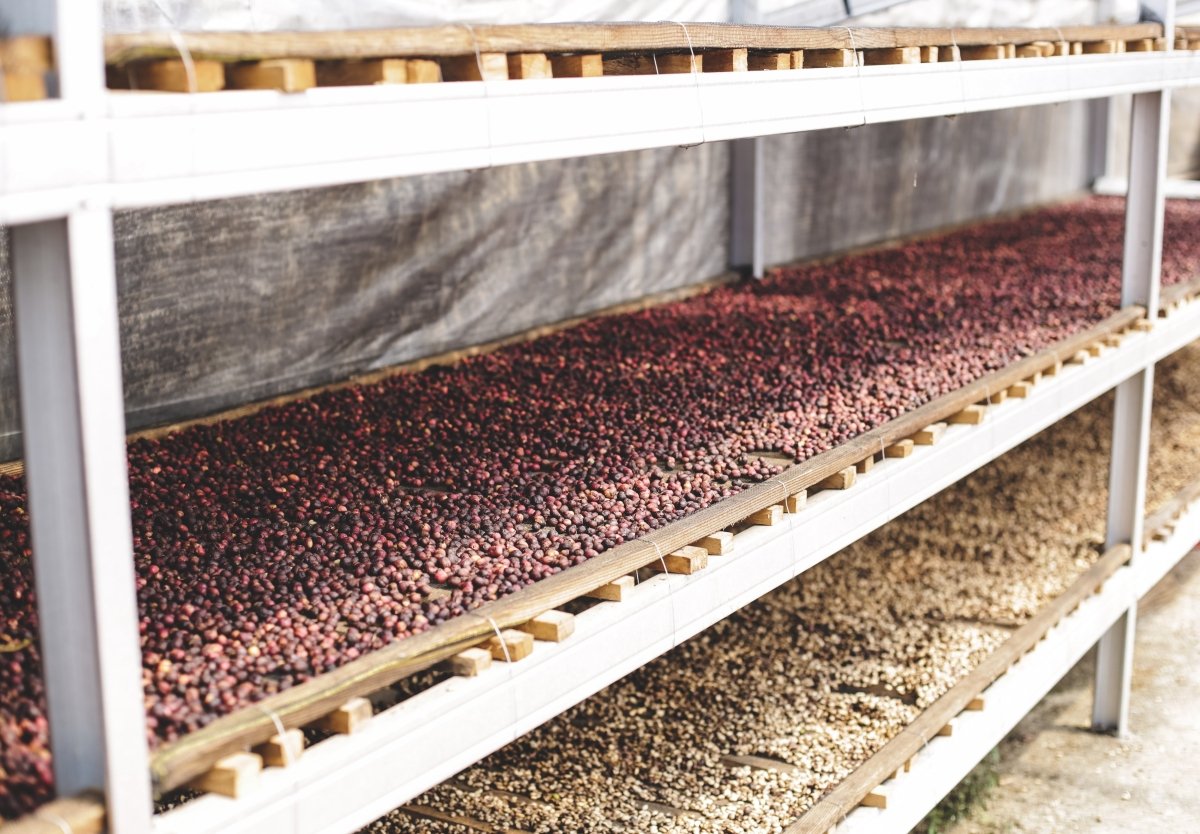Coffee Education · Specialty Coffee
Most grocery store coffee you're buying could be months or even years old, significantly impacting your daily brew's flavor and quality. Your morning cup deserves better than stale, mass-produced beans that have been sitting on shelves under harsh fluorescent lights. When you understand how coffee beans are sourced, processed, and packaged for supermarket sales, you'll discover why your coffee might taste bitter, flat, or just plain disappointing. Here's what you need to know about supermarket coffee before your next shopping trip.
Key Takeaways:
- Major coffee companies often use machine harvesting, which collects unripe beans and can include unwanted materials like leaves and insects.
- Big coffee brands typically over-roast their beans to mask poor quality, resulting in bitter, burnt flavors marketed as “bold” or “full-bodied.”
- Machine harvesting negatively impacts both coffee farmers' livelihoods and environmental sustainability.
- Hand-picked coffee from specialty farms produces superior flavors like blueberries, honey, and milk chocolate.
- Subscription services offering freshly roasted coffee from top farms provide a more ethical and better-tasting alternative to grocery store brands.

The Bitter Truth of Mass-Produced Coffee
Mass-produced coffee sacrifices quality at every step of production. Your grocery store beans typically sit in warehouses for 6–12 months before reaching your cup, losing important oils and flavors. The industrial roasting process, designed for maximum efficiency rather than taste, often results in bitter, one-dimensional flavors that mask the coffee's natural characteristics. This is why you're reaching for cream and sugar to make your morning brew palatable.
The Impact of Machine Harvesting
Machine harvesting strips coffee cherries from trees indiscriminately, collecting both ripe and unripe beans. Your cup suffers because up to 30% of machine-harvested beans are picked at the wrong time, creating sour or underdeveloped flavors. The massive mechanical harvesters also compact soil, damage tree roots, and collect unwanted debris — from leaves to small animals — all affecting the final taste of your coffee.
The Quality Trade-off: Profit vs. Flavor
Large coffee companies prioritize profit margins over your coffee experience. By rushing harvests, bulk processing beans, and over-roasting to hide defects, they're able to cut costs by 50–60% compared to specialty coffee producers. The dark, oily beans you see in stores are often roasted this way to mask poor quality — not to create the bold flavor profile advertised on the package.
Consider this: specialty coffee farmers carefully select beans at peak ripeness, with only 10–15% making the cut for premium grades. These beans contain more aromatic compounds than mass-produced alternatives. Your taste buds can detect this difference — specialty coffee naturally exhibits complex flavors like chocolate, fruit, and caramel without requiring additives to make it drinkable.
The Environmental Cost of Grocery Store Coffee
Mass-produced grocery store coffee leaves a devastating environmental footprint that extends far beyond your cup. The industrial-scale farming methods used by major coffee producers contribute to widespread ecological damage, from rainforest destruction to excessive water usage. Your choice of coffee directly impacts these practices, as large coffee corporations prioritize quantity over sustainable farming methods.
Deforestation and Biodiversity Loss
Your grocery store coffee likely comes from farms that clear-cut rainforests to create vast sun-grown coffee plantations. These monoculture farms eliminate natural habitats for thousands of species and destroy the forest canopy that traditionally shelters coffee plants.
The Carbon Footprint of Coffee Production
The mass production methods behind your grocery store coffee generate significant carbon emissions at every step. Machine harvesting, industrial roasting facilities, and long-distance transportation chains all contribute to a single bag's carbon footprint.

Knowing the Source: What Fair Trade Really Means
Fair Trade certification ensures coffee farmers receive fair compensation for their crops, with prices typically above market rates. Your purchase of Fair Trade coffee directly supports sustainable farming practices, community development projects, and better working conditions. While many grocery store brands display Fair Trade logos, only a small percentage of their total coffee volume actually meets these standards.
Authentic Fair Trade Practices
True Fair Trade goes beyond simple price premiums. Certified producers must meet strict environmental standards, prohibit child labor, and invest in local education and healthcare. Your coffee purchase through legitimate Fair Trade channels helps maintain these standards and provides farmers with long-term contracts that protect them from market volatility.
The Benefits of Supporting Local Farmers
Direct trade relationships with coffee farmers create a transparent supply chain where you can trace your beans back to specific farms and communities. These partnerships enable farmers to invest in quality improvements, sustainable practices, and their local economies. Small-batch farmers typically earn more through direct trade compared to selling through traditional commodity markets.
The ripple effects of supporting local farmers extend far beyond your morning cup. Your purchase helps fund new processing equipment, organic certification costs, and educational programs for farmers' children. Many direct trade partnerships have transformed entire communities.
Elevating Your Coffee Experience: The Art of Hand-Picked Beans
Hand-picked coffee beans represent the pinnacle of coffee quality. Skilled farmers carefully select only the ripest cherries at peak maturity, ensuring each bean meets strict quality standards. This meticulous process preserves the complex flavor compounds that make specialty coffee extraordinary. Your cup benefits from this attention to detail, delivering bright, clean tastes that mass-harvested beans simply can't match.
Flavor Profiles from Different Regions
- Ethiopia: bright, fruity notes of blueberry and citrus
- Colombia: balanced caramel and chocolate undertones
- Indonesia: deep, earthy flavors with hints of spice
The Freshness Factor: Why Roast Date Matters
Coffee peaks in flavor within 2–4 weeks after roasting. The aromatic compounds that give your coffee its distinctive taste and smell begin degrading immediately after roasting. Most grocery store coffee sits on shelves for months, leaving you with stale, lifeless beans that produce flat, bitter brews.
The science behind coffee freshness reveals why roast dates are so vital. After roasting, coffee beans release carbon dioxide in a process called degassing, while simultaneously taking in oxygen. This oxidation gradually breaks down the coffee's oils and flavors. Proper storage in airtight containers helps, but can't stop time. Fresh-roasted beans give you bright, vibrant flavors with pronounced aromatics and nuanced taste notes that simply disappear in older coffee.
Making the Switch: How to Choose Your Coffee Wisely
Moving beyond mass-produced coffee opens up a world of flavor and quality you never knew existed. Small-batch roasters carefully select beans at their peak ripeness, roast them to perfection, and deliver them fresh to preserve their complex flavor profiles. Your morning brew can showcase notes of chocolate, fruit, or nuts — tastes that mass producers simply can't match.
Practical Tips for Conscious Coffee Shopping
- Check roasting dates — fresh coffee was roasted within the last 2–4 weeks.
- Look for single-origin beans to experience distinct regional flavors.
- Choose whole beans and grind just before brewing.
- “100% Arabica” generally offers better flavor than robusta blends.
The Benefits of Subscription Services like His Word Coffee
Coffee subscriptions revolutionize how you experience premium coffee. His Word Coffee delivers freshly roasted, ethically sourced beans right to your door each month. You'll discover new origins, roast profiles, and flavor notes while supporting sustainable farming practices.
Beyond convenience, His Word Coffee provides detailed tasting notes, brewing guides, and the story behind each batch of beans. Our roasters carefully develop unique roast profiles to highlight the natural characteristics of each origin. Plus, flexible delivery schedules mean your coffee arrives exactly when you need it, eliminating those emergency grocery store runs.
Summing Up
On the whole, your choice of grocery store coffee can significantly impact both quality and ethics of your daily brew. When you opt for mass-produced coffee brands, you're likely getting over-roasted beans that were machine-harvested before reaching peak ripeness. By exploring specialty coffee options, you can elevate your coffee experience while supporting sustainable farming practices. Making informed decisions about your coffee purchases ensures better taste in your cup and better conditions for coffee farmers worldwide.
FAQ
Q: Why does grocery store coffee often taste bitter and burnt?
A: Big coffee companies typically over-roast their beans to mask the lower quality and uneven ripeness from machine harvesting. This excessive roasting burns out the natural flavors, leaving a harsh, charcoal-like taste that they market as “bold” or “full-bodied.”
Q: What's wrong with machine harvesting coffee?
A: Machine harvesting collects both ripe and unripe coffee beans indiscriminately, along with potential contaminants like leaves, insects, and debris. This method also reduces job opportunities for local farmers and can harm the environment due to heavy machinery use.
Q: How does the harvesting time affect coffee taste?
A: Coffee beans need to be harvested at their peak ripeness to develop optimal flavors. Hand-picked coffee allows farmers to select only perfectly ripe beans, resulting in natural flavors like blueberries, honey, and chocolate notes in your cup.
Q: How fresh is grocery store coffee typically?
A: Most grocery store coffee has been sitting on shelves for months after roasting, losing flavor and freshness. Quality coffee should be consumed within weeks of roasting to experience its full flavor potential.
Q: What makes specialty coffee different from grocery store brands?
A: Specialty coffee is typically hand-picked, properly roasted to highlight natural flavors, and delivered fresh after roasting. It comes from top-quality farms that prioritize sustainable practices and proper harvesting techniques, resulting in superior taste.
May your daily cup be a simple act of gratitude — for the hands that picked it, the earth that grew it, and the people it blesses along the way.




Leave a comment
All comments are moderated before being published.
This site is protected by hCaptcha and the hCaptcha Privacy Policy and Terms of Service apply.